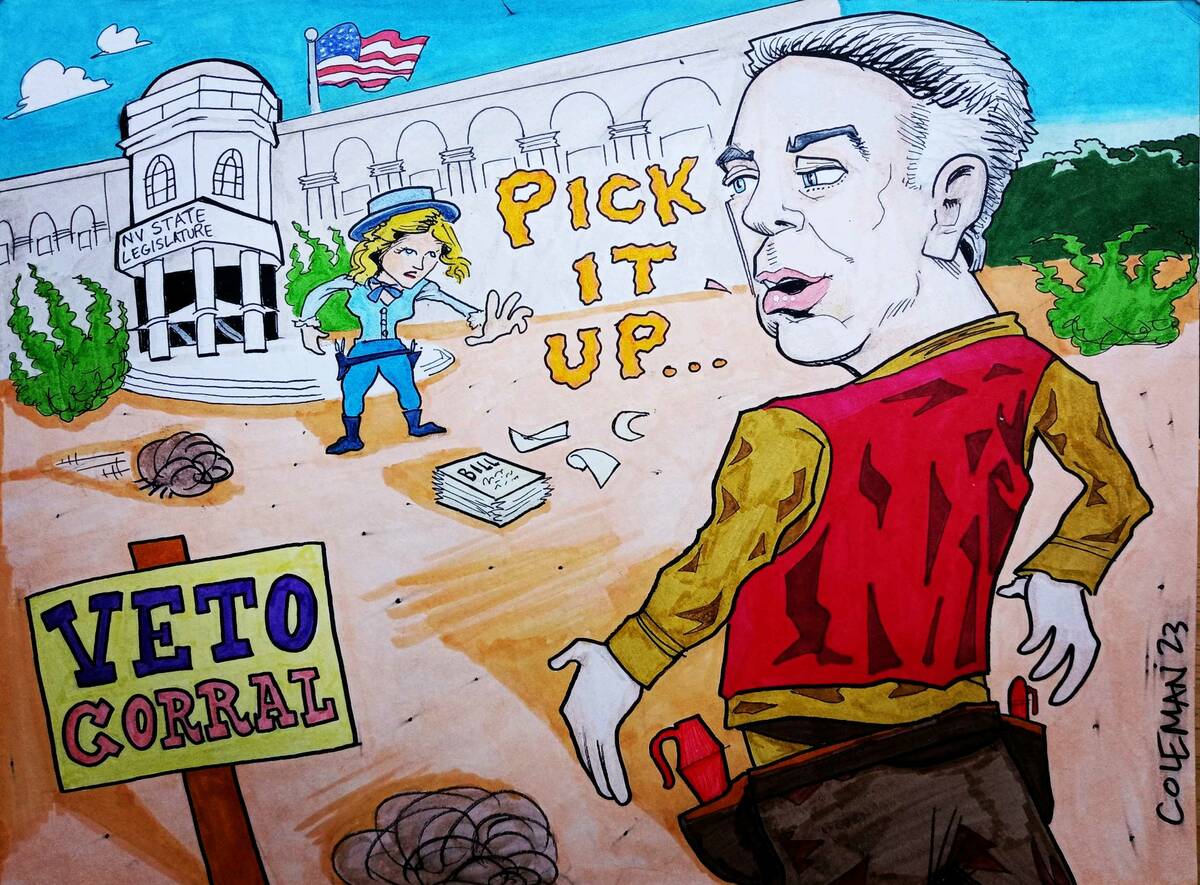EDITORIAL: Lombardo not afraid to check Democratic excess
Gov. Joe Lombardo, a Republican, is doing his job as a check on Democratic dominance in Carson City.
With the 82nd session stretching into the wee hours of Tuesday morning, the governor’s veto pen was almost out of ink. The number of bills he had rejected neared three dozen and counting on Monday — not quite in the league of former Govs. Jim Gibbons (48 vetoes in 2009) or Brian Sandoval (41 in 2017), but still impressive.
Nevada Republicans have had a dismal election track record in recent years, losing federal, statewide and legislative contests. Democrats sit only one vote shy in the state Senate of a legislative supermajority that would greatly diminish the power of the state’s executive branch. Gov. Lombardo’s narrow victory in 2022 over incumbent Democrat Steve Sisolak was one of the state GOP’s rare recent successes and ensured that thousands of Nevada Republicans had a voice in state government.
The governor is hardly being overly intransigent in dealing with legislative Democrats. He’s signed off on billions in more spending, which includes massive pay hikes for state workers and a huge influx of cash for Nevada’s public schools. What’s not for Democrats to like?
Yet without Gov. Lombardo in Carson City, Nevada would be sliding closer toward one-party rule, like California. The governor’s veto power serves to limit progressive excesses. Here are some of the bills that ended up in the circular file thanks to Gov. Lombardo:
■ Assembly Bill 298 would have opened the door to rent control in Nevada, a particularly toxic policy that would exacerbate housing shortages and drive up prices in the long run. AB298 would have imposed limited rent caps for senior citizens and the disabled and paved the way for more expansive limits in the future. Rent control is a bad idea no matter how it’s gussied up.
■ Assembly Bill 235 would have expanded prevailing wage laws to those who perform custom fabrications on public works projects. Prevailing wage laws unnecessarily drive up costs for taxpayers. In his veto message, the governor noted that this bill would also make it “more difficult to build and efficiently manage certain critical infrastructure projects.”
■ Senate Bill 169 would have mandated the planners in Clark and Washoe counties further burden developers with regulations involving “heat” mitigation in an effort to encourage more tree planting and the creation of “cool” spaces. This bill is a tribute to red tape. Is this really an issue for state lawmakers?
■ Assembly Bill 359 would have allowed Clark County to circumvent the voters in 2026 when it comes to maintaining an increase in the gasoline tax passed in 2016. Gov. Lombardo noted that there is no reason to take the matter out of the hands of those who must bear the burden of higher gasoline prices.
This article initially appeared in the Las Vegas Review-Journal.

















